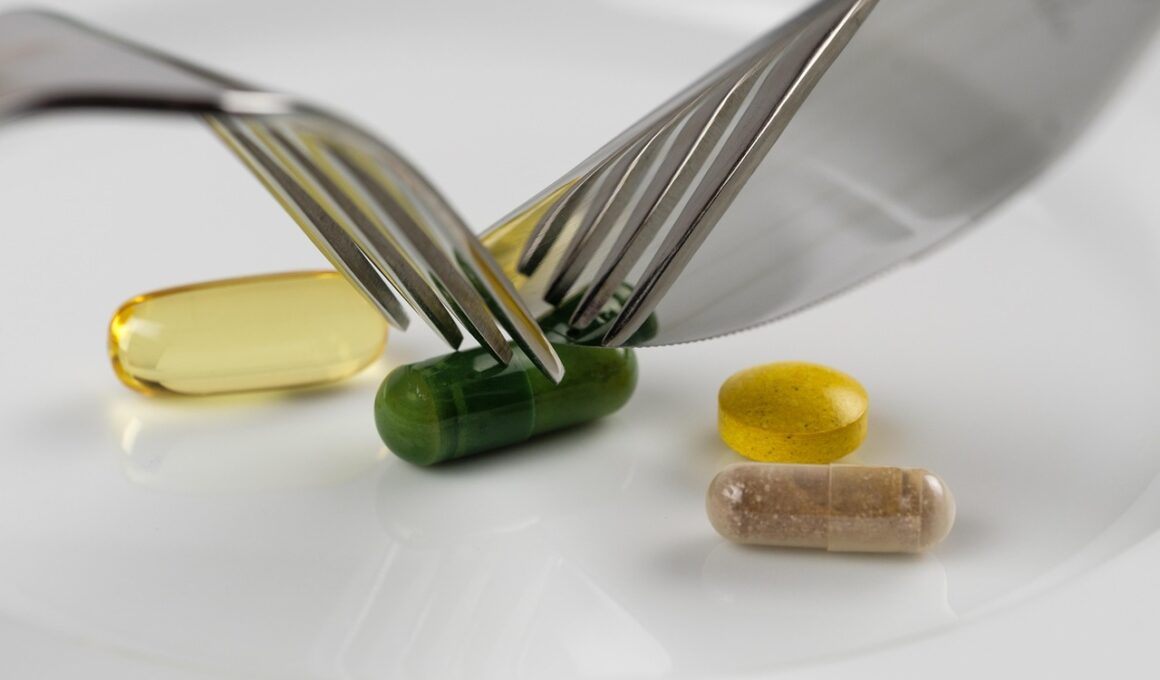Fat Burners and Their Place in Triathlete Nutrition
Triathletes often seek ways to enhance performance, and nutrition plays a vital role in this pursuit. Fat burners have gained popularity among athletes looking to optimize body composition while maintaining energy levels. These supplements include natural ingredients that may assist in fat oxidation, offering benefits such as enhanced stamina and faster recovery. However, it’s essential to approach fat burners cautiously. Not all supplements are created equal, and not every product is suitable for every athlete. Relying solely on these products without a balanced diet can lead to unwanted side effects or nutritional deficiencies. Incorporating healthy fats, proteins, and carbohydrates into a diet must remain a priority. Furthermore, the timing of nutrient intake can significantly affect performance during training sessions or competitions. Therefore, athletes should consider consulting with a sports nutritionist who can help develop a tailored nutrition plan, ensuring the right balance is struck between supplementation and whole foods. Understanding how fat burners fit into the broader nutritional strategy is crucial for achieving optimal results in triathlon training and competition.
Understanding how various supplements affect body performance becomes essential for triathletes aiming for peak efficiency. Fat burners generally include ingredients like caffeine, green tea extract, and L-carnitine, all touted for their fat-burning effects. Caffeine, for instance, can improve endurance by stimulating the central nervous system. Green tea extract, rich in catechins, may enhance metabolism and promote fat oxidation, while L-carnitine plays a role in transporting fatty acids for energy production. The effectiveness can vary based on individual metabolism, exercise intensity, and diet, making it vital for triathletes to monitor their responses closely. Adjustments in training regimens or dietary practices may require tweaking supplement intake as well. To better understand these supplements, athletes often rely on scientific studies and expert advice. Successful supplementation involves balancing fat burners with adequate hydration and nutrient-rich foods. Engaging with fellow triathletes about their experiences can also provide insights. However, the importance of rest and recovery cannot be overstated, as these factors significantly influence performance and should be prioritized alongside nutrition and supplementation strategies.
Balancing Supplementation with Whole Foods
While fat burners can support weight management, they are not replacements for a comprehensive dietary approach. Protein-rich foods should be a cornerstone of any triathlete’s plate, aiding muscle repair and growth. Lean meats, dairy, legumes, and plant-based proteins provide the building blocks necessary for optimal recovery after tough training sessions. Consuming a variety of fruits and vegetables ensures an adequate intake of vitamins and minerals crucial for overall health. Healthy fats are equally important, found in foods like avocados, nuts, and olive oil, as they support sustained energy levels during lengthy workouts. Moreover, carbohydrate sources should be prioritized for pre-, during, and post-training fuel, ensuring glycogen stores are replenished effectively. When integrating fat burners, triathletes must ensure they align with their specific goals, whether that’s weight loss or maintaining muscle mass. Tracking progress through food diaries or apps can help athletes make necessary adjustments. Meticulous attention to hydration should also be a priority, as dehydration can significantly impact performance and recovery.
Triathletes might consider cycling fat burners to prevent potential tolerance or side effects. Short bursts of usage may prevent the body from adapting too quickly to these ingredients. Timing fat burner consumption around training sessions can optimize their effectiveness and minimize gastrointestinal distress. Many athletes prefer taking such supplements prior to workouts for an adrenaline kick, enhancing energy and focus. However, it’s essential to test how your body reacts to them during training rather than in competition. The potential side effects, such as jitters, upset stomach, or sleep disturbances, could hinder race day performance. Additionally, combining fat burners with adequate hydration and energy-rich snacks during the race will help maintain stamina. Keeping a close watch on personal tolerance levels, and adjusting dosages as necessary ensures safety and effectiveness. A well-considered approach to using fat burners can assist athletes in achieving their desired fat loss goals. Yet, knowledge about their long-term implications remains limited, and caution should be the guiding principle in every triathlete’s supplementation journey.
Choosing the Right Fat Burner
Selecting an effective fat burner requires careful research and consideration. Athletes should be wary of unregulated products that make bold claims without scientific backing. Quality is paramount, so they should look for supplements that have been tested for purity and potency. Independent certifications and third-party testing can provide assurance of a product’s efficacy and safety. Reading customer reviews and verifying the credibility of manufacturers can also guide you in making informed decisions. Ingredients transparency is essential, allowing athletes to know exactly what they are consuming. Products with well-studied ingredients, such as those previously mentioned, should be prioritized to ensure usability. Understanding the dosage recommendations is crucial, as taking more than necessary does not equate to better results. Combining multiple supplements or undergoing drastic changes may lead to adverse effects. Engaging in discussions with coaches or nutritionists can help refine choices based on individual requirements and training demands. Ultimately, the goal remains to find how fat burners can effectively blend into a broader nutritional framework for triathletes.
Moreover, monitoring body temperature and energy levels during the use of fat burners can provide insights into their effectiveness and any side effects. Athletes may vary significantly in how they respond to different ingredients. Some might experience enhanced performance, while others could face challenges. Finding the sweet spot may take some trial and error, which emphasizes the importance of patience and adaptation in one’s training. Tracking these metrics over different training cycles not only provides clarity but helps in tweaking dietary habits and supplement use. Journaling food intake and workout performance can yield valuable data, necessary for optimizing both fat burner usage and overall nutrition. Consulting with a medical professional is also wise, particularly for those with pre-existing health concerns. It’s essential to remember that natural approaches should always be considered first. Whole foods often provide comprehensive benefits, addressing not just energy needs but overall health, mental clarity, and recovery capabilities. Therefore, a well-rounded plan combining both whole foods and strategic supplementation often leads to the best long-term results.
Final Thoughts on Nutrition and Training
In conclusion, fat burners can have a legitimate place in the nutritional strategies of triathletes, but their use should be approached with caution and informed decision-making. They can potentially aid in fat loss and improve performance but will not substitute for a balanced diet rich in whole foods. The focus should remain on consistent training, proper hydration, and utilizing nutrients effectively to support sport demands. Individual assessments and consultations with nutrition experts or dietitians can provide personalized recommendations, helping athletes create a tailored approach that suits their prevailing training requirements. Long-term success relies on understanding personal responses to both training regimens and supplementation strategies. Ultimately, integrating fat burners into daily nutrition should enhance physical capabilities and improve one’s racing experience. As triathletes strive to perform their best, maintaining a balanced perspective on nutrition, exercise, and recovery will contribute significantly to ongoing success. With the right approach, achieving peak performance is not only possible, but it becomes a shared journey towards every athlete’s goals in the challenging world of triathlon.


